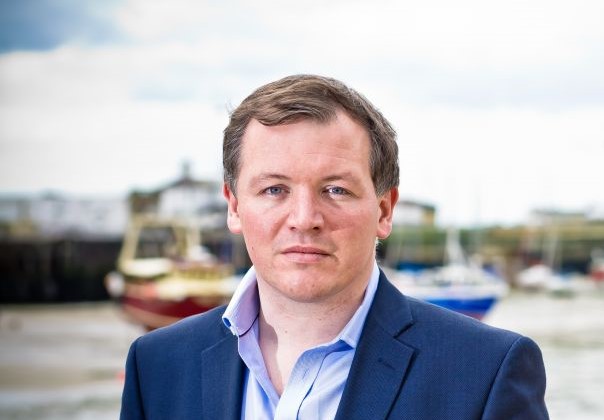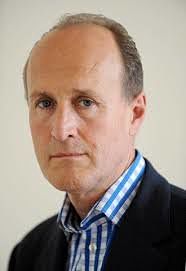
Patrick Barwise is emeritus professor of management and marketing at London Business School, chairman of the Archive of Market and Social Research and co-author, with Peter York, of The War Against the BBC (Penguin, November 2020)
The PSBs, like all British TV broadcasters, face a tough combination of ever-growing competition for viewers, rising real content costs [1] (driven by the big US ‘streamers’ [2] ) and pressure on their revenue [3] – especially the BBC, because of deep cumulative funding cuts [4]. The BBC and Channel 4 are also under political pressure. This briefing note summarises the current state of play on these challenges.
Pressure from the streamers: more competition, higher costs
The ‘streamers’ are pure-play online TV companies that distribute their content via video-on-demand (VoD), funded either by subscriptions (‘SVoD’) or advertising (‘AVoD’). The SVoD players (Netflix, Amazon and Disney+ [5] ), with their huge programme budgets, are driving up the cost of content, production facilities and talent. The AVoD players, mainly YouTube (part of Alphabet/Google), have had less impact on programme and production costs because they get most of their content for free. But they attract a lot of viewing, especially among younger viewers – more than the SVoD services which, being subscription-based, prioritise audience satisfaction over audience size.
Few people only watch the streamers. Instead, most split their viewing between them and the traditional broadcasters, including the PSBs. But, with growing competition and rising content costs, the PSBs are having to work harder than ever to retain viewers, especially younger viewers.
Pressure on commercial PSBs’ advertising revenue
Since the 1990s, people have constantly predicted the imminent death of traditional TV advertising, the commercial PSBs’ main revenue source.
There are certainly challenges: smaller, more fragmented audiences; competition for companies’ advertising budgets both from YouTube and, indirectly, other free-to-access online services like Google and Facebook; and more advertising avoidance as more people time-shift their viewing and fast-forward through the breaks.
However, the commercial PSBs have largely managed to sustain their advertising revenue, partly by stressing their continuing role as the only TV/video players still able to deliver high reach in a fragmented market; partly by aggressively developing their own online advertising revenue. They are also diversifying beyond advertising. ITV, in particular, has built up a subtantial TV production business [6].
Pressure on BBC funding
In contrast, the BBC is in real peril because of deep funding cuts against rising costs and competition. VLV estimated a 30 per cent cut in its real (inflation-adjusted) net public funding between 2010 and 2019 [7] – far more than most people realise.
It has managed to claw back some of this reduction by limiting free TV licences to households with least one member aged over 75 and receiving Pension Credit. This decision was much criticised by the BBC’s enemies. But, in the event, over 90 per cent of those no longer eligible have paid up, thanks to a well-executed BBC communications campaign explaining that paying for free licences for all households with over-75s – regardless of household size or income – would have forced it to make significant service cuts.
As the National Audit Office has confirmed, the Government’s new two-year licence fee freeze will lead to a reduction in BBC service quality (lower budgets, more repeats, etc) [8]. At some point, it will finally be forced to shut down some TV and radio channels. No one asked the public if this is really what they want, to save a few pence per household per week.
Political pressure on the BBC
The main threat to the BBC is the combination of rising real costs and deep cumulative funding cuts, imposed by the Government (with no public consultation or parliamentary scrutiny) in 2010, 2015 and now 2022. The decision to keep the proposal to decriminalise licence fee evasion ‘under review’ is a further threat and distraction.
The BBC is also relentlessly attacked and undermined in other ways, analysed in detail in The War Against the BBC.
One recurrent theme is attempts by right-wing politicians, newspapers and think tanks to persuade the public not to trust its allegedly left-liberal political coverage. These attacks have been remarkably unsuccessful: the public still trusts the BBC far more than it trusts either the Government or the newspapers constantly telling them not to trust it. Indirectly, however, they may have made the BBC more cautious in its news coverage and have certainly forced it to introduce more rules and bureaucracy to reduce editorial risks.
The funding cuts have also forced it to reduce headcount through voluntary redundancies [9], losing many senior, experienced editors, producers and presenters – and increasing the risk of mistakes, which are then eagerly seized on by the Beeb-bashing newspapers [10]. High-profile recent leavers include Andrew Marr, Emily Maitlis and Jon Sopel. Working for commercial broadcasters, they will now have more freedom to express their views, their pay will be both higher than at the BBC and confidential, and they will be much less subject to attacks in the press and social media.
Political pressure on Channel 4: the recurrent privatisation threat
Channel 4 is also criticised for alleged left-wing bias but – perhaps because of its smaller size and its advertising funding – not on anything like the same scale as the BBC.
Instead, the recurrent threat is privatisation, an idea that has already been repeatedly rejected and is opposed by Channel 4 itself, VLV [11], groups representing independent producers (Pact) and advertisers (ISBA), independent analysts like Enders Analysis and, almost certainly, most of the 60,000 respondents to the Government’s consultation, which closed on 14 September 2021 but whose results have still not been published [12]. We still do not know if the Government will persist with Channel 4 privatisation despite this almost universal opposition.
This article first appeared in the VLV Spring bulletin published in March 2022.
References
- The PSBs’ other costs are also increasing as they now have to support both broadcast and online distribution networks in parallel and invest more in technology, R&D and innovation.
- Netflix, Amazon Prime, Disney+ and YouTube.
- The pay TV companies Sky (now owned by Comcast) and Virgin Media (now owned by Liberty Global and Telefónica) are also under pressure because of competition for both subscriptions, from the streamers, and advertising. Advertising accounts for only a small proportion of their revenue but a bigger proportion of their profit.
- Which, of course, impact BBC Radio too. However, BBC Radio’s audiences face less new competition and are holding up well despite growing competition from podcasts.
- A fourth big SVoD player, HBO Max (part of AT&T-owned WarnerMedia), is expected to launch in the UK in 2025. Until then, it is precluded by current licensing deals with Sky. Anna Nicolaou and Alex Barker, ‘Licensing deals put brakes on HBO Max rollout in Europe’, Financial Times, 23 March 2021.
- This is not an option for Channel 4, which is not allowed to produce its own programmes. It has, however, developed market-leading digital capabilities.
- https://vlv.org.uk/news/vlv-research-shows-a-30-decline-in-bbc-public-funding-since-2010/
- National Audit Office, BBC savings and reform, Session 2021-22, HC958, 17 December 2021, https://www.nao.org.uk/wp-content/uploads/2021/12/BBC-savings-and-reforms.pdf.
- A further factor is the policy of moving some departments away from London to counter accusations of ‘London-centricity’. Some staff are unable, and many are unwilling, to move. The BBC will recruit more people in its other centres, but replacing the loss of experience will take a long time.
- The Sun, Mail, Express and Telegraph – ‘SMET’ for short.
- vlv.org.uk/news/channel-4-privatisation-vlv-briefing/
- Patrick Barwise, ‘Privatising Channel 4: A Bad Idea Whose Time May Have Come’, InterMedia 49, 3 (September 2021), pages 34-36.







Follow Us